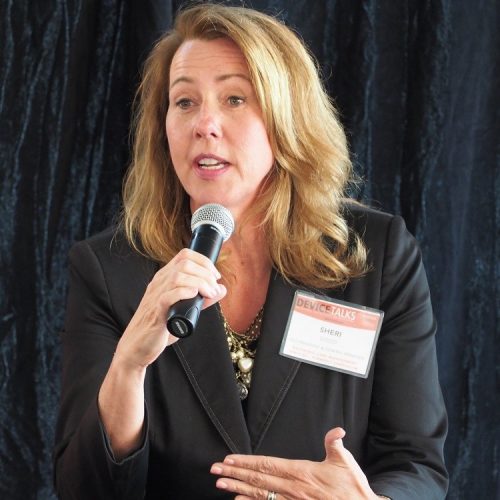Rubber meets the road: Medtronic plans to lead the way in value-based healthcare
Sheri Dodd, VP and GM of Medtronic Care Management Services, discusses Medtronic’s commitment to value-based healthcare.
Value-based healthcare is where the “rubber meets the road” for the future of healthcare, according to Medtronic Vice President Sheri Dodd.
“There will be a time in the very near future when medical device manufacturers will actually get paid for the outcomes that they achieve. It’s as simple as that,” Dodd said during a panel discussion at the 5th annual DeviceTalks event in Minneapolis, sponsored by the online medical device publication MassDevice and Medical Design & Outsourcing Magazine.
“You won’t get paid for making something, you won’t get paid just for providing a service, you’re actually going to get paid for delivering the outcome of that service or that technology,” she added.
Dodd is uniquely positioned to speak about Medtronic’s developing commitment to value-based care. She is Vice President and General Manager of Medtronic Care Management Services, a division of the company designed to help monitor patients with chronic diseases and at various stages of their health and recovery, including after leaving the hospital. Learn more about Medtronic Care Management Services.
“In the business that I run, you don’t have to have a Medtronic device,” Dodd said. “You may have a chronic disease and we’re helping you manage that disease state. I’m really excited about what we’re going to be able to do in terms of that broader base of patients that a value-based healthcare framework provides,” she said.
Dodd said the commitment to value-based healthcare now runs throughout the organization, and is already changing the very nature of how Medtronic does business.
“It’s an extremely disciplined process, and Omar (Ishrak, Medtronic chairman and CEO) holds business leaders accountable,” she said. “The idea that we will change our business model, we will get paid when the outcome is achieved, is a very different model than how med tech has traditionally operated.”
Dodd said all of Medtronic’s business activities, from potential acquisitions to research and development, are examined through the lens of whether, or how, they will contribute to a value-based healthcare system. And she said the company is constantly exploring strategic partnerships with customers interested in the same thing. Not all of them are ready.
“It isn’t always the biggest customer that’s actually ready to do this,” she said. “It’s really the innovative customer, the one looking at – and getting excited about – the fact that there are no clear rules in value-based healthcare and they’re ready to go forge a relationship with you to go make those rules.”
Dodd, who spent five years at the World Health Organization and 13 years at Johnson & Johnson before coming to Medtronic, says medical device companies have a unique opportunity to shape and lead the future of healthcare.
“You cannot signup for outcomes at the end if you don’t have the services and the assets along that continuum to help impact and make a difference along the way,” she said. “For me, medical tech allows you to play more of that ‘end to end’ role. And when you have a mission like we do at Medtronic and you really are driving towards an outcome to be achieved, and you’re looking at the continuum of that care. It’s really compelling.”

